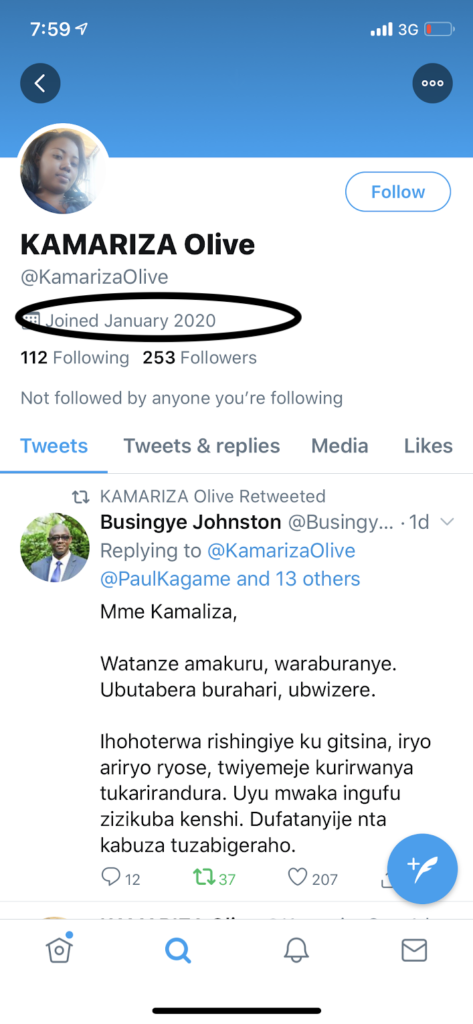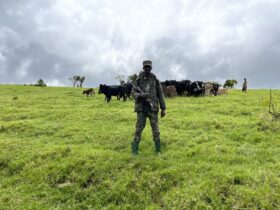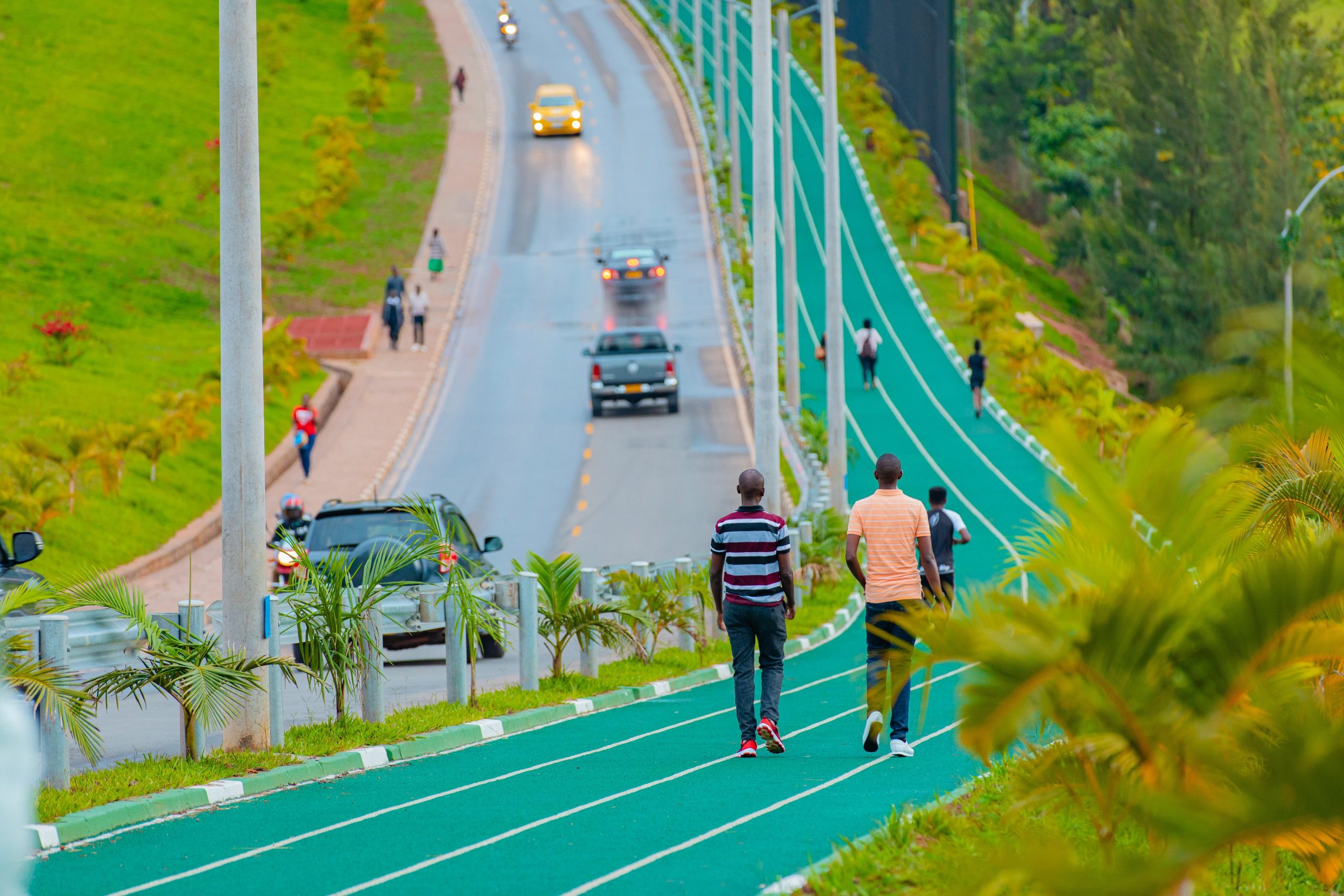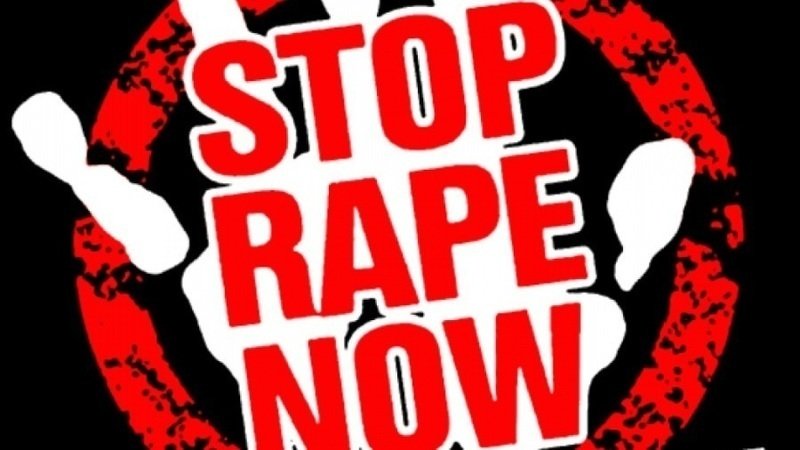This is how it all started: A lady had accused her husband of assault, she had reported the case and the husband had been detained, investigated, prosecuted and put on trial. Then he appealed for bail, as is his right.

The Twitter Handle of the victim was created in this month to influence the court J udgement
On the day the court was to decide on bail. Kigali based ladies – whom I know very well – went and found her, opened a twitter handle for her on the same day, twitted the story that frankly sound heart-breaking. From the thread on twitter, the conviction of the man should have been a formality,
Courts, which were scheduled to read their decision on bail in the usual courtroom, postponed judgement day and announced that they will be reading the judgement from the Musanze stadium.
In the meantime, I had asked one public institution why they had not fired an employee accused of rape. They told me that they had submitted the matter to Rwanda Investigation Bureau and sought its guidance. RIB had informed them that based on evidence at their disposal so far, there was no sufficient ground to prosecute – or to fire the employee.
Then I also learned that based on the victim’s confession, there was no ground for prosecution. Asked why she claimed it was rape, yet she had not actually been raped, I learned that she had indicated that she was not the only victim. When she was encouraged to bring forth the other alleged victims she never did.
I also learned that the second defendant who was sentenced in absentia for ten
I was told, our twitter consultants tried to add a twist that she was under-aged, another lie, in
Since they couldn’t get wh
Now in the entire process, and indeed to date, I have never spoken to any of the alleged perpetrators. Either verbally, through someone or by text.
It so happened that I know some of the alleged victims, I know one of the accused and most importantly, I know the spin doctoresses who set-up these tw
That’s how I started having doubts. Now, doubts should be allowed in any story, especially one on social media. Most people I spoke to, actually believe the men are innocent. It doesn’t mean they condone rape, they are just assessing the matter soberly. But they can’t speak up because they do not want to be called the same names I am being called. This is socially untenable, twitter is never to replace courts of law in our country.
This is how criminal procedure works: Investigation finds evidence of the crime, then submits to prosecution. If
To conclude :
- Rape is bad. I hate it. I hate those who commit it. And I empathise with victims of it.
- However, rape has a legal definition. Nothing in the testimonies of the victims – even if we chose to believe them wholesomely – amounts to rape as defined by Rwandan and most countries’ penal codes. We can have a debate next time on the adequacy of the legal definition of rape or the harshness of the sentence. In the meantime, only Parliament defines crimes and their sentences in Rwanda, not twitter enthusiasts;
- Courts in Rwanda are not obsolete! Nor is the penal code.
- Presumption of innocence until proven guilty is the oldest, most fundamental, constitutional and international law principle. It is at the core of due process. So is the right to an attorney.
- Lawyers defend either victims or perpetrators, I have never seen in any other countries where lawyers are accused of being apologists of the crimes of the perpetrators they defend just because they choose to defend them; everyone deserves due process of law.
- Luckily, Rwanda is a country based on the rule of law. Courts of law should be protected from all manipulation, lies and politics. Perjury, that means wanton lies to the judicial system are and should be punished by law and I know a person or two who would wind up in jail for misleading public opinion, or for forcing the victims to fabricate stories and lie to courts of law ;
- Every woman who claims someone has raped them does not necessarily tell the truth. We have professional, impartial institutions whose mission is to investigate that. These institutions have ‘Gender Desks’ and male and female officers, trained to empathise with victims of GBV. These are the people
whom are mandated to investigate. In the meantime, victims and their sympathisers should be precluded from asserting pressure on judicialprocedure .
- Also, tagging the highest office of the land should be looked upon with suspicion. The leaders are leaders of all Rwandans. The vast majority of Rwandans are not on twitter. In the era of fake news, twitter stories should be taken with a pinch of salt, or at least verified. I have been a blogger for over ten years, I don’t remember ever tagging them, nor have I ever used their names in personal or third party ends, in spite of many requests…
Finally, we reserve the right to doubt! without being immediately assimilated to criminals and called names. Yesterday I was first called rape-apologist, then rape-enabler, then rapist. All because I doubted the story of the alleged victims. All that did was to consolidate me in my doubts about the story, especially since I kept getting more and more information about the lies surrounding those cases, from people in society who know the truth, but fear to tell it.
To conclude. There are 12.5 million Rwandans and maybe
Twitter is not to replace courts and perhaps we should not entertain this
We have reached a point where a girl would disagree with a man for one reason and another, then take to twitter and accuse him, thereby opening a witch-hunt. This is circus!
I will end with this : I will not, by principle, believe any victim who will work with those spin doctoresses! I am not an apologist, I am not an enabler, much less a rapist, I just do not believe them.
People on twitter behave as though the world owes them something. I am here to tell them: You are mistaken! You claim something, you have to prove it, or make a convincing testimony. But no one has to believe you on face value.
Before I forget, back in high school we had debate competitions. One side defended the thesis, and the other side the anti-thesis. Students debated for hours and disagreed convincingly. Never, at no occasion in our time in high school, have I seen a student lose his cool, revert to abuses and name-calling.
With our young people on















Leave a Reply